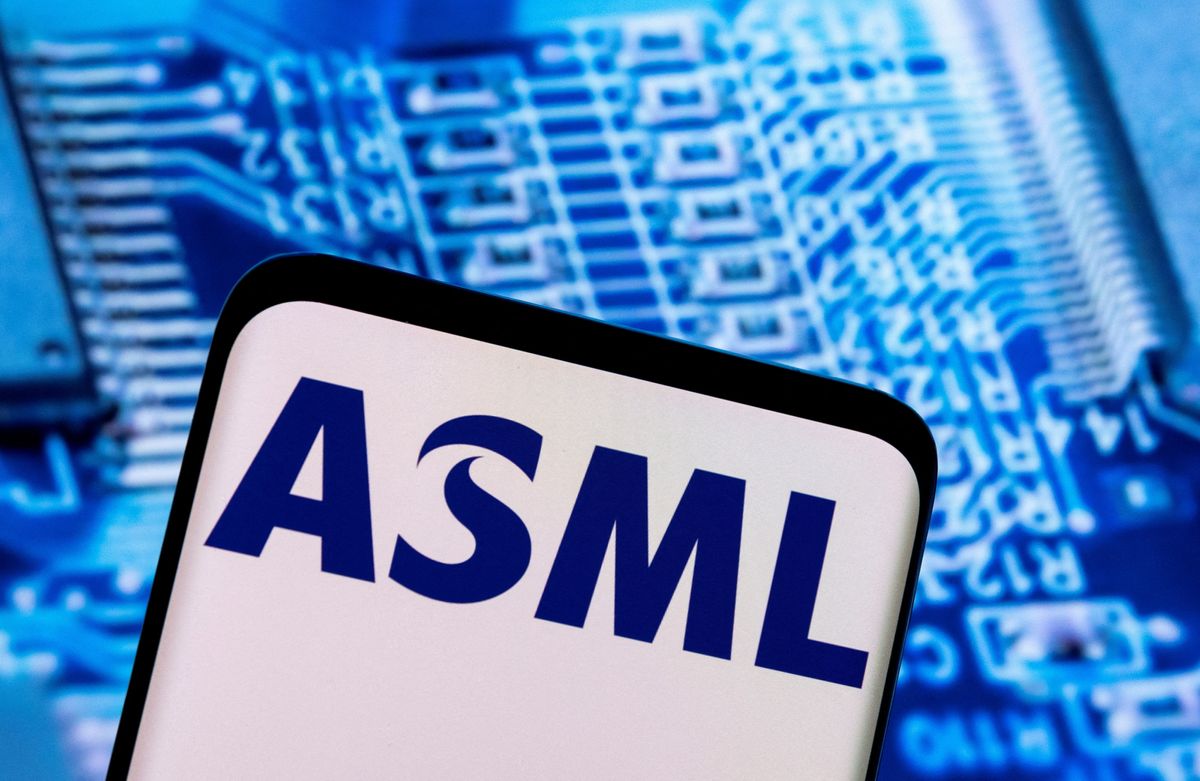China’s SMIC is using ASML equipment to make advanced chips, insiders say
Insiders have come out to say that SMIC is reportedly using ASML equipment to create advanced processors.

A few minutes every morning is all you need.
Stay up to date on the world's Headlines and Human Stories. It's fun, it's factual, it's fluff-free.
The backstory: The US has been tightening curbs on tech exports to China, especially when it comes to semiconductors. For example, last October, the Biden administration introduced new rules on exporting advanced chips and the equipment used to make them, with the goal of boosting the US chip industry and slowing down China's tech progress. This essentially created a roadblock for China's chip sector and escalated competition between the two nations. The Netherlands and Japan also joined in, halting the export of certain chipmaking equipment to China around March.
In one corner, we have China's Semiconductor Manufacturing International Corporation (SMIC) aiming for self-sufficiency in making chips. In the other corner is ASML, a Dutch tech giant known for making machines crucial for microchip production. But, these export restrictions prevent ASML from selling its most high-tech machines to China.
More recently: In August, Chinese tech giant Huawei released its Mate 60 Pro, which raised eyebrows because of the seemingly advanced processor the device used. Bloomberg asked TechInsights to break down the device, and the group found that the 7-nanometer chip that powered the phone was made by SMIC, meaning China’s chipmaking was way more advanced than the US thought or wanted it to be.
Earlier this month, the Biden administration introduced more controls, further tightening the export of less-advanced Deep Ultraviolet (DUV) machines, especially the immersion DUV lithography gear from ASML. These curbs use a "de minimis rule" to watch over the sale of foreign-made lithography machines if they have even a tiny bit of American parts.
The Netherlands is on board, too. It’s imposed restrictions on ASML sending certain immersion DUV lithography machines to China starting from January 1. ASML CEO Peter Wennink pointed out that both US and Dutch restrictions will impact up to 15% of their sales in China.
The development: Insiders have come out to say that SMIC is reportedly using ASML equipment to create advanced processors, like the one in the Huawei phone that caught international attention. According to these anonymous sources, ASML's advanced immersion DUV machines had been used alongside tools from other companies to produce the advanced chip. Experts have said that these DUV machines can be altered to make 7-nanometer and possibly even more advanced chips. The process is really expensive, but China sees it as a worthwhile investment.
The report had a direct impact on ASML as its shares dropped over 2% in Amsterdam just after it came out. The company did not comment on the report, but there’s no belief that the company violated existing export restrictions with sales to China.
Key comments:
"We have taken this step in the interest of our national security," said Dutch Trade Minister Liesje Schreinemacher in June, after the announcement of more export restrictions to semiconductor equipment, adding such equipment may have military applications.
"I don't think we will see a peak this year, I think there will be a significant amount of demand coming out of China for mature technology," said ASML CEO Peter Wennink.
“Most people in industry and government believe that lithography tools are the strongest of the choke points that Western governments have put in place,” said Chris Miller, an associate professor of international history at Tufts University and the author of Chip War. “Because of that, there’s been intense focus” on ASML.




Comments ()